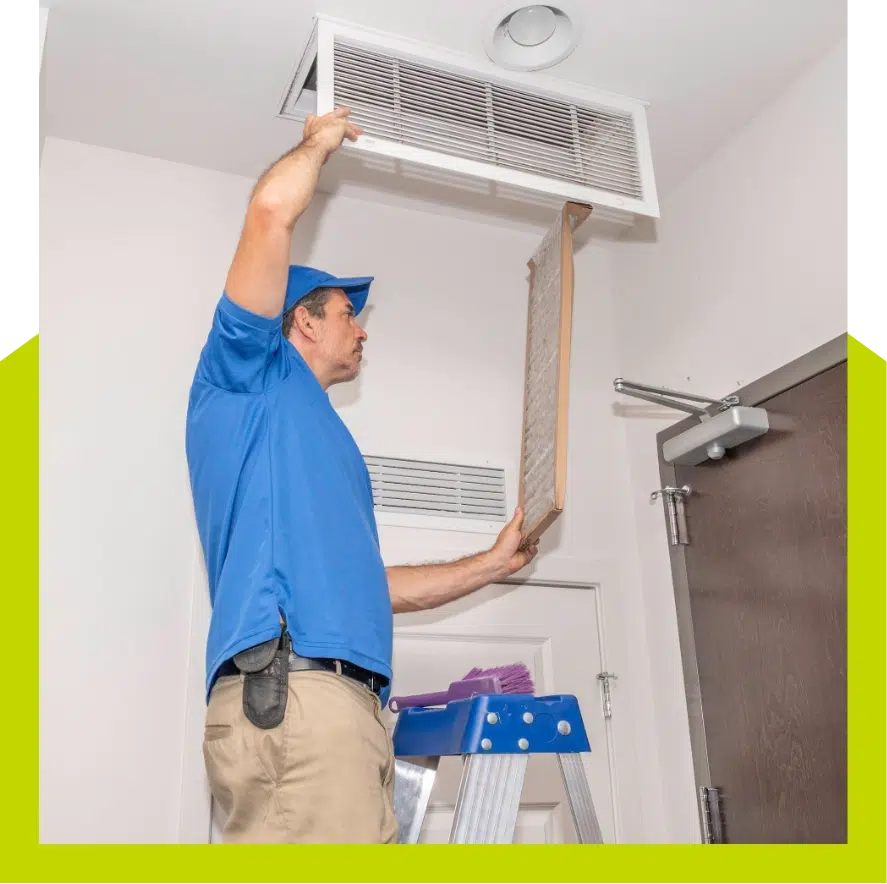Changing Your Air Filters
Most HVAC manufacturers recommend changing your air filter at least once every three months. Depending on the climate, you may need to replace the filter more often. Also, if you have pets, especially dogs and cats that shred a lot, or if you have an older unit, your air filter may also require more frequent attention. In Arizona, things can get dusty. Your air filter filters out these particles to prevent them from entering your home, so you’ll need to check your filter sooner than three months.
If you forget to change your filter, you may notice your HVAC system isn’t working as it should. While you may be tempted to call for service. The first thing you should do is check your filter. Most filters are located next to your system’s air handler inside a tray or a door.
There are several signs that it’s time to change the air filter in your home.
- Excessive dust on every surface
- Rising energy costs
- Reduced air flow from your vents
- Buzzing or rattling noises coming from your HVAC system
- Filter looks dirty or is old
Benefits of Clean AC Air Filters
There are several types of air filters. Regular pleated filters are the most common and are made from polyester fabric or cotton. While they are cost-effective, they tend to filter out less pollutants than higher rated filters. HEPA filters remove close to 100% of airborne allergens and pollutants. If you have allergies or respiratory illness, these filters can help improve your indoor air quality, which may make it easier to breathe. Other options include UV filters, which use short-wave ultraviolet light to kill airborne viruses and bacteria, and electrostatic filters, which act as a magnet to attract dust and other particles.
Regardless of which type of filter you use, it’s important to change it periodically for the best results.
Changing your HVAC filter regularly provides many benefits.
- Extends the life of your HVAC system
- Improves the energy efficiency of your unit
- Better indoor air quality
- May reduce the likelihood of repairs
- Better temperature control
How to Find the Right Replacement for Your Air Filter
Filtering efficiency
An air filter is designed to capture foreign bodies from the air, preventing these particles from being inhaled by the occupants or being stuck around moving parts of your air conditioner. There are many ways to measure filtering efficiency, with one of the most popular being the MERV, or the Minimum Efficiency Reporting Value. The higher the MERV rating, the better the performance of the filter.
Energy efficiency rating
Air filters nowadays are designed not only to filter out impurities from the air, but they should also facilitate more efficient performance for your air conditioner. Filters can improve energy efficiency by promoting smooth airflow in your AC. Aside from capturing particles that can get stuck in your AC’s moving parts, air filters should also be designed to lessen air resistance which can make air conditioners perform less efficiently.
Compatibility
Your air filter should be compatible with your air conditioning unit. Failing to get a unit that matches the specs of your AC will not just result in poor performance and reliability, but it could also damage your AC unit. It can even be grounds for voiding the warranty of your HVAC unit! Only choose a filter that’s compatible with your air conditioner.
